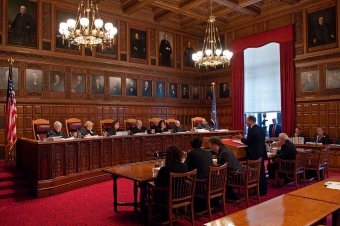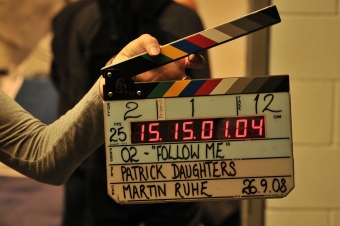Summary:
In order to experience a cultural Exchange with Indians people, Law, Social Service, Nursing and Physical Education, students met “in loco” different Indians tribes from Minas Gerais state. They visited the Krenak tribe – in Resplendor -, the Pataxó Tribe – in Cramésia – subdivided in three villages: Ibiruçu, Guarani, and Recanto das Águas. The visits took place in all semesters, since 2010, and they had as goals the awakening from students and their acceptance to different and ethnic racial relations, and the establishment of a cultural exchange between the Krenak and Pataxó tribes and the Salgado de Oliveira University students – in Belo Horizonte. Additionally, it accelerated the solidarity to the Indian cause at its maintenance to their culture and habits to know the Indian reality making visit to the Pataxós Indians – Carmésia – Minas Gerais State and Krenak – Resplendor, in Minas Gerais.
Objective:
- GENERAL GOALS: Understand diverse behaviors, represented in our communities and created by societies, minorities, genders, classes and ages through time and space and social interaction. The Indians are inserted inside the general goals because they have a diverse behavior.
- SPECIFIC GOALS: To study the diverse cultures created by the human population, through time and space, used to satisfy their material survival, reproduction and psychic realization. Reveal the recurring elements and the relation between individuals and their respective culture. In this point, the Indian culture survives amid the consumer society appeals that praise the material instead of the immaterial and spiritual. The cultural exchange transforms the students. They leave aware and willing to embrace the Indian cause. The students change in relation to the Indian culture and to the interest for the Indian cause becomes more effective, when the students are able to live the cultural exchange experience.
- DEVELOPED ABILITIES: It was intended to develop the appreciation of the knowledge and of the necessary and indispensable assets information to the development and extension of the cultural and human capital and to the professional improvement; Also, it was intended to know the committed action with the overcoming of ethnocentric and intolerant facing the difference; Additionally, the important recognition of the exercise as a necessary tool to the dialogue and otherness recognition in social contexts and intercultural difference of the contemporary world; Finally, the analytical reflection about the concept of culture as a social and symbolic phenomenon
Dynamics:
- TEACHING METHOD: expository class, critical reading and technical visit.
- REQUIREMENTS: In relation to the students, the preparation consisted in preparing meetings with the professor and the Caciques’ tribes and also in research about the Indians tribes from Minas Gerais.
In relation to the professors, the implementation is of great responsibility the execution of the project. The professor should explain the goals of the field work and the responsibility students would have during this activity. Questions that guide the project execution: What are the main objectives of the cultural exchange project or they only want to go for a tour? How to transform the perspective from those who see this activity as leisure and not as an academic assignment?
- DEVELOPMENT OF THE DYNAMICS: The activity shows peculiarities in each semester. Next, there is a visit report to the Pataxó tribe, in 2011:
1st stage: February:
-02/14/2011 – Project Discussion with the manager of the Law course, Professor Inês Campolina.
- 02/15/2011 – Meeting with the Cacique Baiara of the Pataxó tribe, at Universo.
- From 02/21 to 02/28/11 – Project presentation and motivation to the students aiming the visit to the Pataxó village.
2nd stage: March
- Students research about the Indians tribes existing in Minas Gerais.
3rd stage: April
02/21, 02/22 and 02/23 – Visit to the Pataxó Tribe.
4th STAGE: From May to October, 2011
- Reflection of what was learned in the cultural Exchange with the Pataxó Indians.
- Establishment of concrete support actions and solidarity to the Indians people through the developed project elaborated by the students and the University.
- Seminar Presentation in the Philosophy and Anthropology classes in the Law, Physical Education, Social Services and Nursing Courses.
- RECONHECER A DIVERSIDADE CULTURAL Project presentation at the Legal week promoted by the Law Course.
- Cultural Exchange Project (in the Pataxó villages) presentation with at the Universa Extension Week (SEMEX) and on the Social Responsibility Day – UNIVERSO.
- Elaboration of the work project connected to the Indian community.
The students and professors, during the visiting days, had an intense interaction with the Indians of the Pataxó Tribe:
• They participated of the tribe routine: visits to the native environment, dances and rituals, meals with the tribe, and took part in Indians games: “arranca toco” and “não deixa o bambu cair”.
• They also had meetings with the community to know the history and the Indians fight to survive in the midst of the modern society. The history and Indians fight reports were made by Cacique Mesaque and community members that talked about child education, maintenance of the Pataxó culture and also of the prejudice they suffer. During the meetings, the students and professors asked questions, made reflections about the actual reality, contributing to the cultural exchange.
• They had the opportunity to know how is the school system, which is maintained by the own tribe with Pataxó teachers.
• They promoted recreation with the kids.
• They conducted interviews with the Caciques and with the community members about different themes related to the Pataxós: social organization, education, history, Indian fight.
• They participated in the cultural night promoted by the Pataxós. This was the moment the Indians and students talked about culture, music, sang songs and performed dance and singing presentations.
The report and the photo gallery of the Indians games can be seen on the attachment of this activity.
- ATTENTION IN THE ACTIVITY: It is necessary to clarify the objectives and the focus of the project, also treat with seriousness the work and respect that the students should have with the Indians culture. This aspect is so essential for the success of the activity, that in one of the visits, the death of an Indian made the students wait for 30 days until they could visit the next village, changing the activity date (showing the difference of the fight period in the Indian society, which cannot have any ceremony and reception of strange people to the village).
Evaluation:
- GRADE EVALUATION: The students should present a written work and make an exhibition at the University, trying to awake other students for the Indian reality and sensitizing them to the Indians causes.





